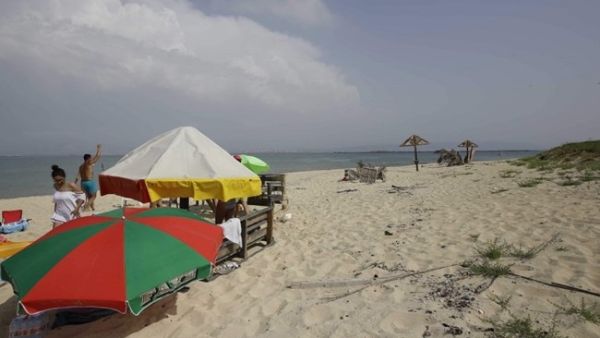Tripoli’s Palm Islands Nature Reserve, a popular destination for bird-watching, snorkeling and hiking, has opened for the summer, the state-run National News Agency reported over the weekend.
The nature reserve is made up of three islands and covers 5 square kilometers of land and sea. It is also one of the few remaining breeding grounds for the endangered loggerhead turtle.
The reserve was reopened in 1999 after being closed for seven years, and in 2012, it was designated a specially protected area of importance in the Mediterranean under the Barcelona Convention.
Environment Minister Fadi Jreissati opened the islands Saturday. From July to September, the reserve is open to the public, accessible by boats that ferry visitors to the islands. From October to June, visitors must obtain a permit from the Palm Islands Committee.
Speaking during his tour, Jreissati said the opening of the islands “puts Lebanon and Tripoli on the map of global environmental tourism,” later adding that “all of us in Lebanon must strive to ... protect our migratory birds and ecological diversity.”
More than 160 species of migratory birds stop to rest and nest on the reserve; seven of these are considered threatened worldwide, while another 11 species are considered rare in Europe.
{"preview_thumbnail":"https://cdn.flowplayer.com/6684a05f-6468-4ecd-87d5-a748773282a3/i/v-i-8…","video_id":"84db95f3-aab3-413a-a636-f368a0450fa6","player_id":"8ca46225-42a2-4245-9c20-7850ae937431","provider":"flowplayer","video":"Palestinians Protest Demolition Plan by Israel in East Jerusalem Village"}
The environment minister was joined on his visit by Tripoli MP Faisal Karami, who said promoting tourism goes hand in hand with caring for the environment, and that Jreissati’s visit “confirms his keenness for the city of Tripoli, which is suffering from great neglect.”
Lebanon’s second-largest city has highest rates of urban poverty in the country. A 2015 study by the Social Affairs Ministry and the United Nations Development Program found that 26 percent of people lived under the poverty line, and another 57 percent were classified “poor and deprived.”
Ahead of the nature reserve visit, the group visited the city’s landfill, where Jreissati pledged to find the necessary solution to the sorting of waste in the area.
This article has been adapted from its original source.








